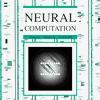While I wait to begin construction of my next experiment (assessment panel approval pending) I have been working hard on various different bits and pieces. My paper for the oblique angles study is almost ready for submission (bar the inevitable red pen from Jenny, and a results section that is still half-written as we finish analysing the results) and I am pleased with the progress. With the analysis we have constructed various models to try to map the data, with my personal favourite being a combination of two Gaussian curves, and others including absolute values (which means the magnitude of the number only, not the sign, for example the absolute value of -2 is just 2) and polynomials (terms with powers, such as squared and cubed etc.).
Jenny and I are discussing these later this week, to decide which is the best to model the data. We have assessed the significance using SPSS already so all we really want is a nice smooth model to represent the data well. I am thrilled to announce we do have significant results however, which is something scientists always like to hear! While I don’t agree with the practice it seems to me a trend in journals is that significant results get published much more. Probably because significance proves something, where a lack of significance, by definition, proves nothing.
For example if you spin a 5 coloured spinner and say ‘it is definitely red’ – then you have a result (red). However if you say ‘it is not definitely red’ you cannot say anything about the results. It may in fact be red. But even if it is not you have no idea what colour it really is.
I can see the argument for such papers (definitely red) getting preference but I do believe scientific research would develop much quicker were all the non-significant tests and results published, even somewhere open access like wikipedia. If only to check nobody has already tried what you’re thinking of and failing. Such a site may indeed exist but I haven’t heard of it. Some non-significant result papers do make it in if they are well written or have original methodology, but the habit of selecting significant papers is one I think sometimes hinders scientific development. Just my opinion.
Wow got a bit sidetracked there! So while waiting for my next experiment to be approved and set up I have also submitted my paper on oblique angles to IC3D to see if they would like me to present (still waiting to hear from them) and I am presenting a poster twice in the space of a week! Once at an internal ION event (postgraduate poster evening, should be fun) and NEPG2013 (6-university wide event where postgrads can submit, and I was selected. Much more formal and a bigger deal!) So I am looking forward to that.
Lastly I have assembled my team of supervisors properly for my PhD. Tom Smulders, who did animal behaviour with me in my MRES year, and Vivek Nityananda, a member of the lab, will join Jenny in making sure my PhD goes without a hiccup!





















Hi Paul,
Check out this recent article in the Economist which very much backs up your view:
http://www.economist.com/news/leaders/21588069-scientific-research-has-changed-world-now-it-needs-change-itself-how-science-goes-wrong?spc=scode&spv=xm&ah=9d7f7ab945510a56fa6d37c30b6f1709
Best,
Jenny
Oh and this:
http://www.nature.com/news/nobel-laureate-challenges-psychologists-to-clean-up-their-act-1.11535